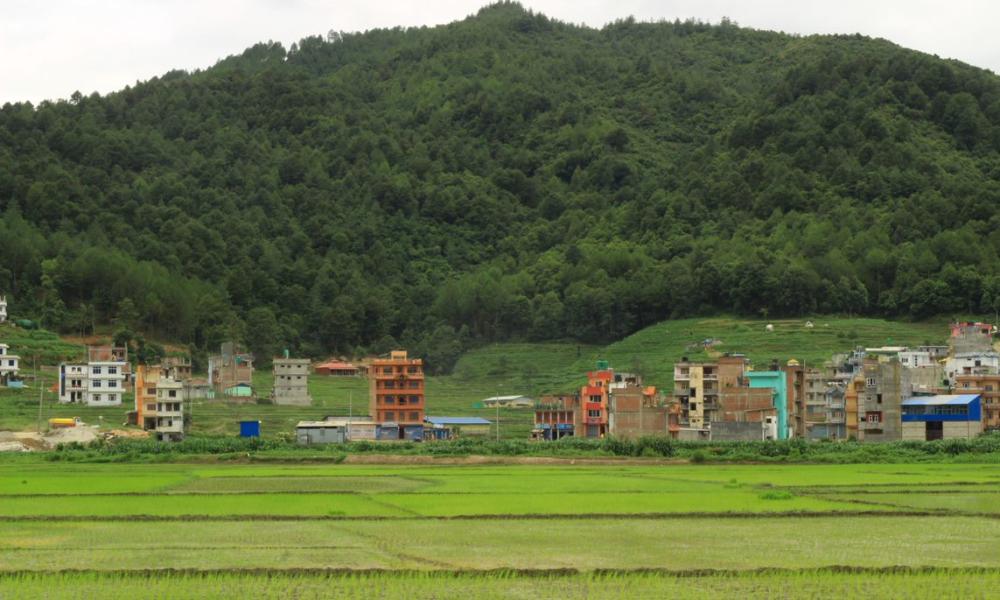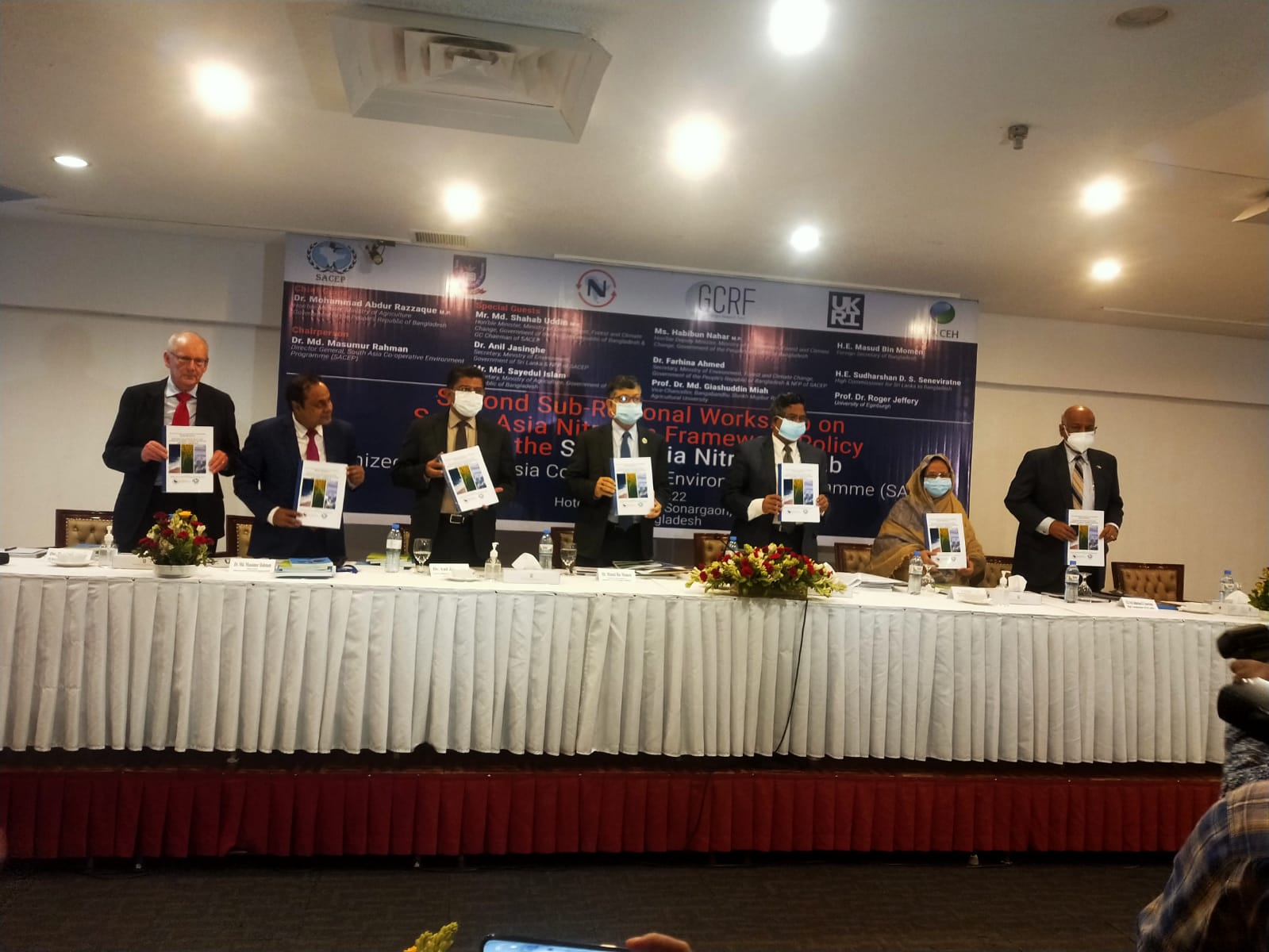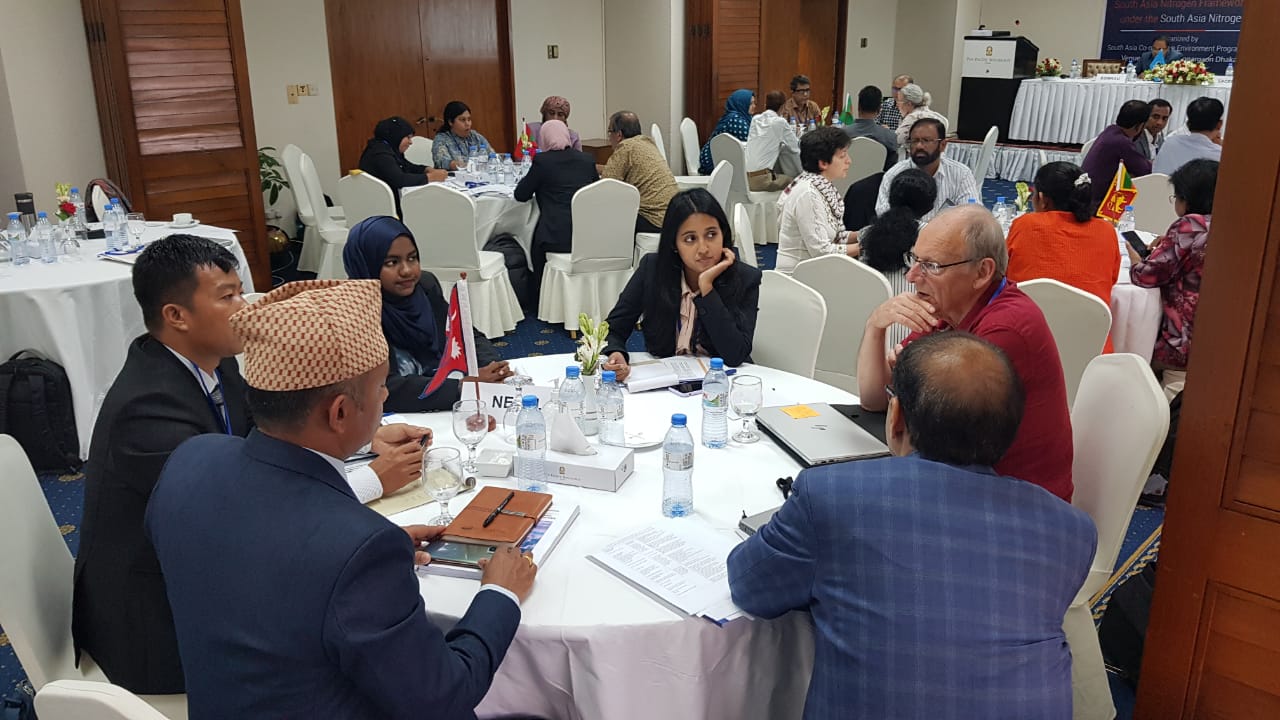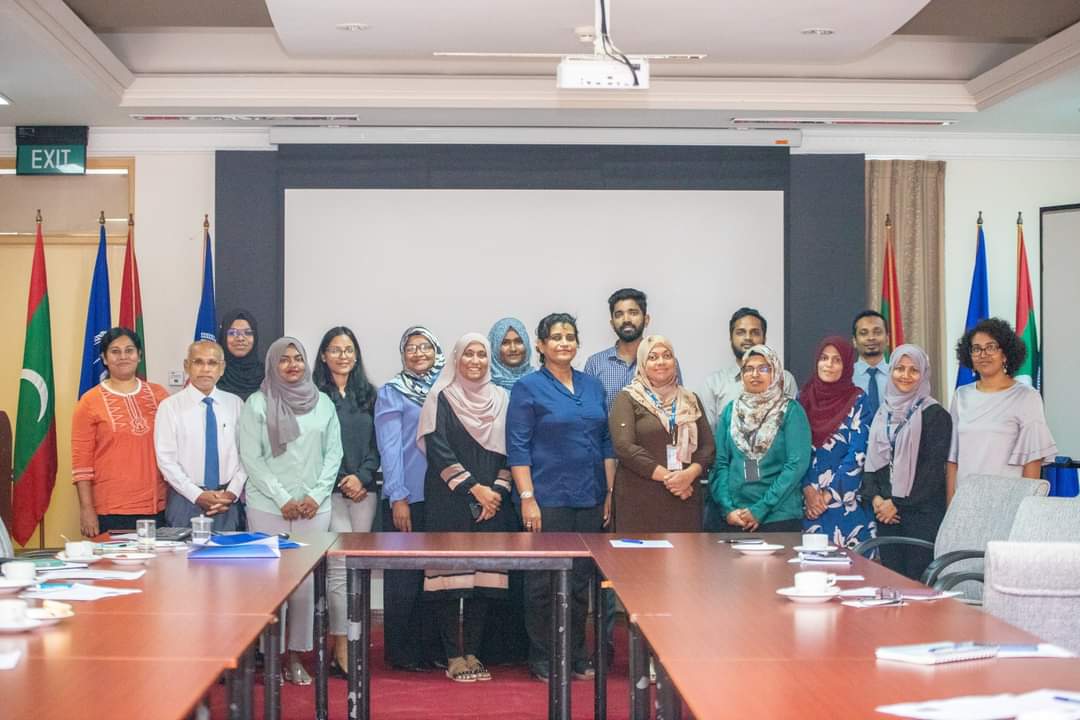
Time to Take Stock and Action
Written by Dr Anastasia Yang
South Asia Regional Cooperative Programme (SACEP) in partnership with the UKRI-GCRF South Asian Nitrogen Hub (SANH) held a two day technical workshop in Dhaka, the capital of Bangladesh on 21-22nd June 2022. SANH scientists reported to government representatives from across the region on the latest findings on the nitrogen crisis in South Asia. Further actions are already underway. Collaborations between governments and scientists to develop national actions plans to support sustainable nitrogen management have been kick-started.
Nitrogen pollution, another crisis?
Well, excess reactive nitrogen (Nr), aka pollution, is directly linked to almost all the major environmental crises the world is facing. Nitrogen pollution impacts climate change, ecological habitats, water quality, soil health and air quality. All these issues are felt acutely across South Asia. The region is not only a major producer of nitrogen emissions but also one of the areas most vulnerable to its impacts.
Nitrogen, fertilisers, and agriculture?
Nitrogen pollution is emitted from numerous sectors such as transport, industry, energy, waste management, sewage processing, and agriculture. Nitrogen, a crucial nutrient for plant and crop growth, is most well-known for its role in agriculture, via the use of fertilisers. Yet inefficient use of fertilisers is one the main causes of rising nitrous oxide (N2O) and ammonia (NH3) emissions in South Asia. From agriculture, nitrous oxide (N2O) emissions 63%, and for ammonia (NH3) 60% are emitted by managed soils.
Finding a solution: What is the role of policy?
One way to tackle rising nitrogen emissions is via international and national policy. At the March 2022 United Nation Environmental Assembly (UNEA), a new resolution on sustainable nitrogen management (UNEA5.2) was adopted. This resolution highlights the necessity of nitrogen for life and for safeguarding food security, amongst other benefits. Yet it also outlines that action is crucial to reduce reactive nitrogen waste and to use nitrogen efficiently. The resolution encourages nations to develop national action plans for sustainable nitrogen management, that can minimise waste, whilst enhancing the benefits. Taking stock of nitrogen emission, sources and existing policy is the first step. This is what we in SANH and SACEP have been working on.
Stepping in the right direction
South Asia is already ahead of the game. The UKRI-GCRF SANH project includes 32 leading research institutes from across South and the UK. We have been gathering the evidence base since March 2019, to support evidence-based decisions to enable sustainable nitrogen management in South Asia. The region has been making strides in research and policy around nitrogen over recent decades (Raghuram et al 2021). Yet despite these efforts, nitrogen emissions are still rising at alarming rates. The SACEP-SANH 2nd ‘South Asia nitrogen framework policy’ two-day workshop, held in Dhaka, Bangladesh, marked a historic moment for South Asian cooperation to develop an evidence-based policy approach to tackle nitrogen pollution and rising emissions. Nine government representatives from five South Asia countries (Nepal, Sri Lanka, India, Maldives and Bangladesh) joined the workshop. From SACEP, the intergovernmental body and organiser, their Director-General Dr Md. Masumur Rahman led on the event and from SANH we had over 20 of our scientists in attendance.
“This of course is a field where more research can be done and regional cooperation can also pave the way for further actions. We all know about the carbon emission and carbon footprint and how it should be mitigated, but nitrogen policies of different countries can also contribute to the betterment of our environment.” - Foreign Secretary of Bangladesh

The latest evidence on nitrogen
We officially launched our SACEP-SANH joint report (2022) at the workshop, detailing the nitrogen pollution issues in South Asia, and highlighting the region as a global reactive nitrogen hotspot. In addition, our report provides insights into current initiatives and policies already in place across Afghanistan, Bangladesh, Bhutan, India, Maldives, Nepal, Pakistan, and Sri Lanka. A total of 966 polices were collected by our team and analysed and key messages synthesised. The report is also summarised and available as a policy brief, and scientific findings published in a journal paper (Yang et al., 2022). In SANH we have also been working on national level nitrogen policy level reports. These reports are in development by research institutions in the respective South Asia countries. At the workshop country findings from these reports were presented by our SANH team giving an overview into nitrogen emission trends, key drivers, and policy gaps and opportunities, and detailing standout policies. Summaries of the evidence for several countries are also available. We also successfully launched the Bangladesh Nitrogen Policy Report (Shifa et al 2022)) at the workshop.
“This workshop on sustainable Nitrogen management organised by SACEP and SANH is very important for the SA countries to firm up their actions. […] Research work by SACEP and SANH will provide a basis to think upon their policies to make [them] effective, so nitrogen management can happen in and effective manner and nitrogen pollution is controlled.” -Scientist, Ministry of Environment, Forest and Climate Change, Government of India
During an inaugural event, in the presence of Bangladesh ministers and senior civil servants, we officially launched the two research reports. Special guests gave speeches on nitrogen including the chief guest Dr. Muhammad Abdur Razzaque MP, Minister from the Ministry of Agriculture

National Action Plans for sustainable nitrogen management
During the workshop discussions focused on how of National Action Plans for sustainable nitrogen management, as proposed in UNEA5.2, could be developed. We presented a draft template provided by Kanter et al. (2020) that is currently being prepared to guide Action Plan development. We facilitated round table discussions that enabled the scientists and the government representatives to share experiences, ideas and propose next steps. Several key points were agreed on:
- National Action Plans are necessary to help tackle rising nitrogen emissions, along with setting of national nitrogen targets
- For each country working groups and/or inter-ministerial nitrogen committees at the national level need to be formed, or reactivated (in the case of Sri Lanka).
- Raising awareness both within government and with the general public was recognised as a high priority.
- Gaps in research were also noted as an issue, and such gaps need to be identified and capacity improved by using available funding.
- Opportunities were identified within each country on where improvements and solutions were needed in particular sectors such as transport, waste management, agriculture and energy.
We have elaborated on the key outcomes of the two-day workshop in a summary report (2022).
Action already underway
Since the workshop in June 2022, our efforts have not stopped. Actions are already underway at the national levels with continued collaboration between our SANH Scientists and national governments.
A ‘sustainable nitrogen management Inter-institutional meeting’ was held by Sri Lanka’s Ministry of Environment on 23rd August 2022. This event had 17 government members in attendance representing tnitrogen-relevantant ministries from transport, agriculture, environment and industry. The meeting was organized with the aim of re-energizing the inter-ministerial nitrogen committee and taking further action on addressing the nitrogen issue. SANH scientist Professor Nissanka provided a comprehensive and widely-welcomed account of the state of the art on nitrogen policies and nitrogen emissions trends in the country. Further national events have taken place since, including the latest event held by the Sri Lanka government on the 15th of November to raise awareness on sustainable nitrogen management, attended by 47 high-level officials with content provided by SANH scientists. Nepal also successfully launched it’s national policy report in an event organised by the Ministry of Education, Science and Technology on the 20th October. The secretary of the Ministry stated that “This [report] will help spread awareness about Nitrogen management, and how research is important for this step”
In addition, SANH scientists at the Maldives National University hosted a workshop on 30th August 2022 to seek feedback on the Maldives nitrogen policy report and discuss the roles and key actions of stakeholders in mitigating nitrogen pollution. The workshop was attended by representatives from the Maldives Meteorological Services, the Environment Protection Agency, and representatives from multiple relevant ministries including that of Higher Education, Tourism, Environment, Climate Change and Technology, Fisheries, Agriculture and Marine, and the Agro National Corporation.

In these milestone national level events a range of institutions and ministries were represented, showing a recognition of the need for integrated action across sectors. The scientific research provided by our SANH scientists was reported in these events to support policy decisions around nitrogen management. At ,these events the ambition to form national nitrogen committees, or in the case of Sri Lanka to form new sub-committees, was reiterated, along with a commitment to take actions further to achieve sustainable nitrogen management.
Developing national action plans for sustainable nitrogen management as the next step seems even more possible. Meanwhile SANH scientists from across the various Research Programmes continue to build the evidence base. National nitrogen policy reports have been finalised for Sri Lanka (Nissanka et al 2022) and Nepal (Joshi et al 2022) and for other countries the reports are being finalised and fine-tuned.

Finding a solution, the role of SANH and SACEP
We at SANH, in partnership with SACEP, will continue to support national governments in South Asia to move the nitrogen agenda forward by providing the evidence base to support the development of National Action Plans for sustainable nitrogen management and thus to develop a regional road map for sustainable nitrogen management. Such actions are critical to save lives, save money, and avoid the harmful effects of nitrogen pollution to the environment, by finding workable solutions to the nitrogen crisis. As a result, we hope countries in South Asia could be the first in the world to be put forward National Actions Plans for sustainable nitrogen management showing the rest of the world how it’s done.
For further information details please contact: SANH Senior Research Fellow: Anastasia Yang: anastasisa.yang@ed.ac.uk
Resources
- Azhar A., Yang A.L. (2022) Pakistan Nitrogen Policy Report Summary: Policy Focus, Scientific Support and Current Interventions, Summary policy report, UKRI GCRF South Asian Nitrogen Hub (SANH)
- Das, S., Tyagi, N., Choubey, S, Jeffery R. Yang A.L. (2022) Barriers and Challenges to effective Nitrogen Management: Stakeholder Analysis of Agriculture Policies in India. SANH report, India.
- Joshi R., Shrestha, R., Pokharel A., Yang A.L. (2022) Nepal Nitrogen Policy Report: Scientific Evidence, Current Initiatives and Policy Landscape, SANH Policy Paper, Kathmandu. https://sanh.inms.international/sites/default/files/2022-06/Final%20SANH%20policy%20report_Nepal_%20June%2015.2022.pdf
- Joshi R., Shrestha, R., Pokharel A., Yang A.L. (2022) Nepal Nitrogen Policy Report Summary: Scientific Evidence, Current Initiatives and Policy Landscape, Summary policy report, UKRI GCRF South Asian Nitrogen Hub (SANH)
- Nissanka, S.P., Jayaweera, A., Yang A.L. (2022) Nitrogen Policy Report: Sri Lanka, South Asia Nitrogen Hub (SANH), Peradeniya, Sri Lanka, and Edinburgh, UK; https://sanh.inms.international/sites/default/files/2022-06/Report%20Final%20SL.pdf
- Nissanka, S.P., Jayaweera, A., Yang A.L. (2022) Sri Lanka Nitrogen Policy Report Summary: Scientific Evidence, Current Initiatives and Policy Landscape, Summary policy report, UKRI GCRF South Asian Nitrogen Hub (SANH)
- Raghuram, N., Sutton, M.A., Jeffery, R., Ramachandran, R. and Adhya, T.K., 2021. From South Asia to the world: embracing the challenge of global sustainable nitrogen management. One Earth, 4(1), pp.22-27. SACEP & SANH (2022) South Asian Regional Cooperation on Sustainable Nitrogen Management, Nitrogen Pollution in South Asia: Scientific Evidence, Current Initiatives and Policy Landscape, SANH Policy Paper PP1, Colombo & Edinburgh https://sanh.inms.international/publications/SACEPSANHPolicyReport
- Shazly, A., Fathimath, F., Ahmed, Z., Jeffery, R., Yang A.L. (2022) Maldives Nitrogen Policy Report Summary: Scientific Evidence, Current Initiatives and Policy Landscape, Summary policy report, UKRI GCRF South Asian Nitrogen Hub (SANH)
- Shifa, S., Yang, A.L., Anik, A.R., (2022) Bangladesh Nitrogen Policy Report: Scientific Evidence, Current Initiatives and Policy Landscape, SANH Policy Paper, Gazipur; https://sanh.inms.international/sites/default/files/2022-06/SANH%20report_BD_final.pdf
- Yang A.L, Adhya, T.K., Anik, A.R., Bansal, S., Carnell, E., Chowdhury, S., Das, S., Hassan R., Jayaweera, A., Jeffery R., Joshi, R., Kaushik, H., Khaleel, Z., Nayak, D., Nissanka, S., Panda, A., Pokhrel, A., Porter, S., Raghuram, N., Safi, Z., Sharmin, S., Sharna, S.C., Shazly, A., Sutton, M.A, Tomlinson, S., Tshering, D., & Watto, M.A. (2022) South Asian Regional Cooperation On Sustainable Nitrogen Management Nitrogen Pollution and Policy Responses in South Asia, South Asia Co-operative Environment Programme (SACEP) and the UKRI GCRF South Asian Nitrogen Hub (SANH) Policy Brief. https://sanh.inms.international/publications/nitrogenpollutionandpolicy
- Yang, A.L. (2022) Afghanistan Nitrogen Policy Report Summary: Scientific Evidence, Current Initiatives and Policy Landscape, Summary policy report, UKRI GCRF South Asian Nitrogen Hub (SANH) Yang, A.L., Raghuram, N., Adhya, T.K., Porter, S.D., Panda, A.N., Kaushik, H., Jayaweera, A., Nissanka, S.P., Anik, A.R., Shifa, S. and Sharna, S.C. Joshi, R., Arif Watto, M., Pokharel, A., Shazly, A., Hassan, R., Bansal, S., Kanter, D., Das, S. & Jeffery, R. (2022) Policies to combat nitrogen pollution in South Asia: Gaps and opportunities, Environmental Research Letters, https://doi.org/10.1088/1748- 9326/ac48b2
